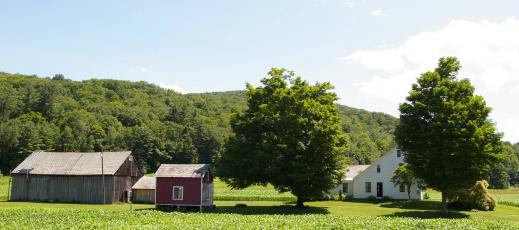News from the Buckland Board of Health
COVID-19 is again on the rise.
The newest variant is highly transmissible, and the Buckland Board of Health is following CDC guidelines and recommending indoor masking to help curb transmission to protect our most vulnerable residents. Please continue good hand hygiene, as well as voluntary masking and self-quarantining if you are symptomatic with cough, congestion, fever, headache, general malaise, and other non-specific symptoms of COVID-19. COVID-19 home test kits are available to Buckland residents free of charge.
West Nile Virus and Eastern Equine Encephalitis:
The are two mosquito borne illnesses currently affecting Massachusetts residents, and will be active UNTIL THE FIRST HARD FROST. Any Buckland residents traveling to high risk areas should take precautions to avoid getting mosquito bites.
West Nile virus:
The Massachusetts Department of Public Health (DPH) announced the third human case of West Nile virus (WNV) in a Massachusetts resident this year. The individual is a male in his 50s who was exposed in Hampden County. The risk of human infection with WNV is moderate in the Greater Boston area (Middlesex, Norfolk, and Suffolk counties), and in parts of Berkshire, Bristol, Hampden, Hampshire, Plymouth, and Worcester counties.
In 2022, there were eight human cases of WNV infection identified in Massachusetts. WNV is usually transmitted to humans through the bite of an infected mosquito. While WNV can infect people of all ages, people over the age of 50 are at higher risk for severe disease. Most people infected with WNV will have no symptoms. When present, WNV symptoms tend to include fever and flu-like illness. In rare cases, more severe illness can occur.
Eastern equine encephalitis (EEE):
The Massachusetts Department of Public Health (DPH) announced that Eastern equine encephalitis (EEE) has been detected in multiple communities. This finding raises the EEE risk level to high in Brimfield, Sturbridge, and Holland and to moderate in Wales. This is in addition to the six communities already at high risk for EEE: Douglas, Dudley, Oxford, Southbridge, Sutton, and Webster. Auburn, Charlton, Grafton, Millbury, Northbridge, and Uxbridge are at moderate risk. Everyone in these moderate- and high-risk areas should take the recommended steps to prevent mosquito bites; this includes avoiding outdoor activity between dusk and dawn in the high-risk communities.”
EEE is a rare but serious and potentially fatal disease that can affect people of all ages. EEE is generally spread to humans through the bite of an infected mosquito. There were 12 human cases of EEE in Massachusetts in 2019 with six deaths and 5 human cases with one death in 2020. There were no human cases of EEE in Massachusetts in 2021 or 2022. No human or animal case of EEE has been detected in Massachusetts so far this year.
People have an important role to play in protecting themselves and their loved ones from illnesses caused by mosquitoes.
Avoid Mosquito Bites
Apply Insect Repellent when Outdoors. Use a repellent with an EPA-registered ingredient (DEET (N,N-diethyl-m-toluamide), permethrin, picaridin (KBR 3023), oil of lemon eucalyptus [p-Menthane-3,8-diol (PMD)] or IR3535) according to the instructions on the product label. DEET products should not be used on infants under two months of age and should be used in concentrations of 30 percent or less on older children. Oil of lemon eucalyptus should not be used on children under three years of age.
Be Aware of Peak Mosquito Hours. The hours from dusk to dawn are peak biting times for many mosquitoes. Consider rescheduling outdoor activities that occur during evening or early morning in areas of high risk.
Clothing Can Help Reduce Mosquito Bites. Wearing long-sleeves, long pants, and socks when outdoors will help keep mosquitoes away from your skin.
Mosquito-Proof Your Home
Drain Standing Water. Mosquitoes lay their eggs in standing water. Limit the number of places around your home for mosquitoes to breed by draining or discarding items that hold water. Check rain gutters and drains. Empty unused flowerpots and wading pools and change the water in birdbaths frequently.
Install or Repair Screens. Keep mosquitoes outside by having tightly fitting screens on all windows and doors.
Protect Your Animals
Animal owners should reduce potential mosquito breeding sites on their property by eliminating standing water from containers such as buckets, tires, and wading pools – especially after heavy rains. Water troughs provide excellent mosquito breeding habitats and should be flushed out at least once a week during the summer months to reduce mosquitoes near paddock areas. Horse owners should keep horses in indoor stalls at night to reduce their risk of exposure to mosquitoes. Owners should also speak with their veterinarian about mosquito repellents approved for use in animals and vaccinations to prevent WNV and EEE. If an animal is suspected of having WNV or EEE, owners are required to report to the Department of Agricultural Resources, Division of Animal Health by calling 617-626-1795, and to the Department of Public Health by calling 617-983-6800.
More information, including all WNV and EEE positive results, can be found on the Arbovirus Surveillance Information web page at Mosquito-borne Diseases | Mass.gov, which is updated daily, or by calling the DPH Division of Epidemiology at 617-983-6800.
Thank you for helping keep our town safe.
Members of the Buckland Board of Health.
Peggy Hart
Carmela Lanza-Weil
Julia Godfrey





